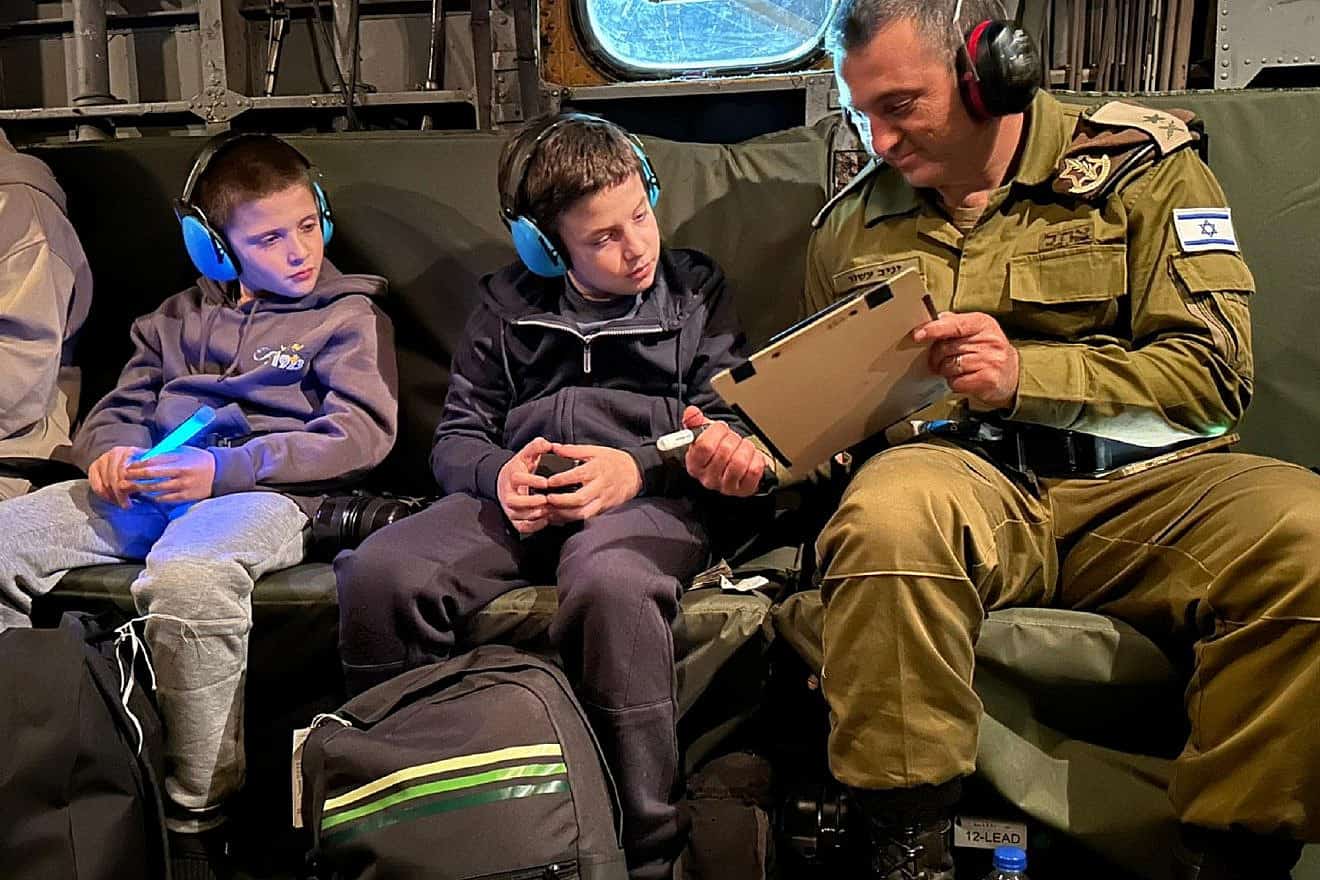U.S. President Joe Biden and his administration have said often that Israeli Prime Minister Benjamin Netanyahu has thanked him repeatedly for the White House’s work securing the release of Israeli hostages. Some of the readouts of meetings that the prime minister’s office has released echo the same.
But the Palestinian prisoner exchange and current ceasefire in Gaza associated with the civilian hostage deal have drawn mixed reviews from Congress members, and it appears to be doing the same outside the United States and Israel.
Col. Richard Kemp, a former British Army officer, told JNS that a few days’ pause in fighting to facilitate hostage releases “will not have any material effect on tactical operations except to delay the defeat of Hamas.” Hamas terrorists might see “marginal advantages” in their ability to regroup and prepare for future attacks, he added.
Kemp told JNS that he didn’t want to speculate about what he would do if he were leading the Israeli government, saying “it’s a hard question to answer without knowing everything Netanyahu knows about this situation.”
From a military perspective, Kemp told JNS that he would not have gone ahead with the deal. But given the “political dimension” of the operation, he suspects that he would do the same thing Israeli leaders are now doing. “In war, it is essential to maintain the support of as much of the country as possible,” he said. “Of course, the perspective of the White House must be taken into account.”
The former British Army leader also cautioned that the hostage deal could burnish Hamas with a more positive global reputation, leading to an “erosion of the barbaric image of Hamas confirmed on Oct. 7.”
Aryeh Lightstone, executive director of the nonprofit Abraham Accords Peace Institute, told JNS that “anyone without full security clearance and all pertinent facts should be very careful about saying what they would do.”
Lightstone, a former senior adviser to David Friedman, former U.S. ambassador to Israel, added that the Biden administration paid “$6 billion for five American hostages, putting all of our allies at risk for more hostage-taking.”
He stated: “I continue to be outraged that radical Islamists continue to hold hostages. That outrage will continue until every hostage is returned to their homes and Hamas surrenders or is eliminated.”
‘No-win situation’
Emi Palmor, former director general of Israel’s Ministry of Justice and chair of NATAL-The Israel Trauma and Resiliency Center, told JNS that Israeli society feels very deeply about recovering kidnapped Israeli civilians and soldiers.
“This is part of the morality that we expect from our government,” she said. (Palmor was heavily involved in the negotiations for the return of Gilad Shalit, the Israeli soldier who was taken captive by Hamas into the Gaza Strip in 2006 and exchanged five years later, in 2011, for 1,027 Arab terrorists.)
“It’s a no-win situation,” Palmor told JNS. She didn’t characterize the current negotiations as a “hostage deal,” though, but instead as a “first fraction” of the Israeli public’s expectation.
Phyllis Chesler, an author and professor emeritus of psychology at the City University of New York, wrote a memoir about being a Jewish captive in Afghanistan. “I understand, viscerally, what being held hostage is like, especially when you know, or fear, that no one will help get you out,” she told JNS. “That there is no exit.”
“The Israeli-Hamas hostage negotiation involves wrenching moral and political decisions, as well as unequal realities,” she told JNS. She noted that Hamas leader Yahya Sinwar, who was released in exchange for Shalit, turned out to be a mastermind of the Oct. 7 terror attacks.
“Do the Israeli government and people want to experience something like this again?” she posed.
Chesler said she worries about “potentially deadly consequences later on” in such an exchange. “Is our responsibility to a larger number of Israelis and Jews in the future over and above our obligation to those Israelis who are now probably being tortured in tunnels far below the earth in Gaza?” she asked.
“I think it is unwise, even dangerous to negotiate with terrorists,” said Chesler, “but the deal is done.”

























